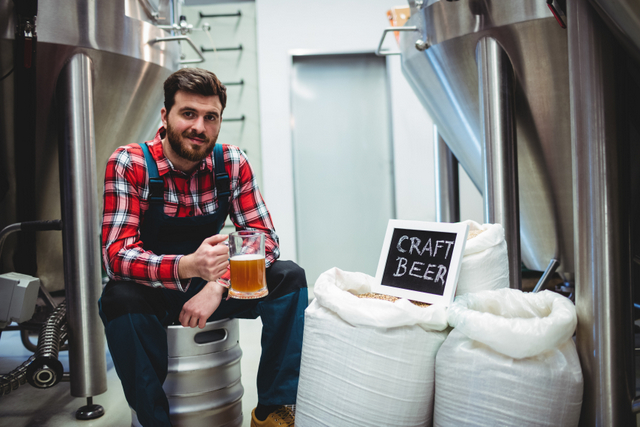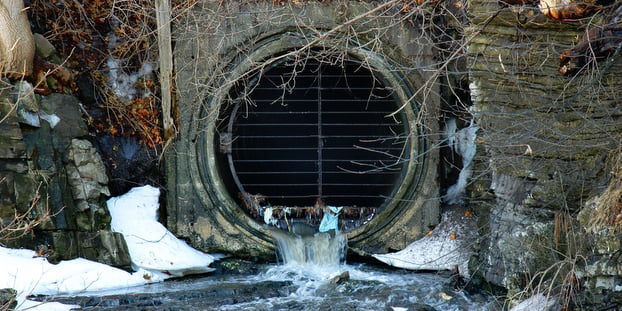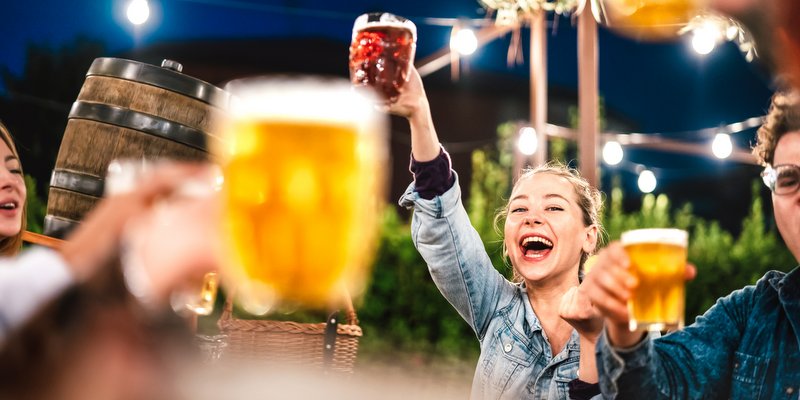
Shift beers are a popular incentive shared among many brewery employees — a satisfying way to wind down at the end of the work day. But if their managers and employers don’t take a critical look at this perk, a routine shift drink could prove disastrous for the employee, innocent bystanders and the brewery itself.
What happens when an employee has a beer or two during their shift and maybe just one more? What if the employee is sampling particularly high-octane beers of 9 to 12 percent ABV? What if that employee then attempts to drive a company vehicle and tragedy strikes?
In this article, we explore employee drinking during or after shifts in breweries and look at tragic events that have resulted from this seemingly harmless practice. We’ll also look at how breweries can take steps to protect their customers and businesses —while letting their employees indulge a bit.
Lessons learned
For many brewery employees, drinking comes with the job. Staff members grab a beer after their shifts. They attend beer festivals and events with co-workers as part of their job where they are certain to imbibe. Drinking can bring staff together, helping create a friendly workplace and knowledgeable servers. Plus, it builds brand ambassadors — customers benefit from the staff’s knowledge of the brewery’s wares.
Unfortunately, these employee bonding experiences do bring with them risks.
Here’s an example: A brewery gathered some team members to attend a large craft beer festival. While driving home in his company car, an employee side-swiped another vehicle and fled the scene. The employee was found by the authorities and admitted to hitting the other car. When authorities inquired, other employees present at the festival acknowledged that the employee was drinking during the day, but they said they did not think he was intoxicated. Despite this fact, sending an employee to a beer show and then putting them behind the wheel of a company vehicle is tough to defend in a court of law.
In another incident, a team of employees from a brewery attended a beer festival together and stayed in short-term vacation rental. At the show, they had beer and liquor, which led to a claim of inappropriate conduct against a brewery employee by another employee. In this case, regardless of what happened, having all employees stay in the same house allowed for a large employee liability exposure.
Compensatory vs punutive damages
In situations like these, claim costs can balloon quickly as courts in some states consider punitive damages on top of compensatory damages for the victims. Compensatory damages typically include medical bills, lost wages or earning capacity, pain and suffering, loss of profits, etc.
If the court finds that an intentional act led to a higher probability of the incident occurring, punitive damages can be sought against the brewery. When breweries require their staff to attend beer festivals, suggest they sample the beers on tap and then send them driving in a company car, they are increasing the probability of an accident, which creates punitive exposure. Punitive damages are designed to reprimand bad behavior.
Punitive damages can put financial strain on a brewery or any business. In a number of states, employers can be held vicariously liable for punitive damages awarded against employees if their wrongful action occurred while they were working or if that action was approved by their employer. Further, it’s important for brewery owners to understand, that in at least 19 states, insurers cannot pay for punitive damages awarded against an insured brewery – leaving that brewery on the hook for a potentially very large sum of money and its future in jeopardy.
How to protect your business
Most brewery owners got into the business because they love beer. They know that many of their employees are working at their breweries for the same reason. So, what can they do to preserve the positive culture that they’ve worked so hard to build, while setting some basic safety standards to protect their business?
First, they need to start thinking: If dthe worst were to occur and they had to testify in court, what will they have to say to defend their business? They will need to show that they have put policies in place to protect their employees, society and their business.
Drafting a written policy for employee drinking within the facility or during work hours at an off-site event is one of the best ways to reduce their risk exposure. A good insurance partner, who specializes in the unique risks facing breweries, can help a brewery owner get started. In this policy, brewery owners should consider the following:
- Implementing a zero-tolerance drinking and driving policy when a company vehicle is in use.
- Implementing a one-beer-per-hour policy with a defined maximum.
- Requiring that alternative transportation is secured after employees attend work-related beer festivals.
- Routinely checking the driving histories and other legal records of employees.
- Prohibiting alcohol from being served to employees who have a record of driving under the influence, prior history of arrest for violent behavior from drinking alcohol or a history of alcohol or substance abuse.
- Prohibiting employees from mixing prescription drugs or illegal substances with alcohol while on the job or on site.
- Prohibiting managers from consuming alcohol while on the job.
- Preventing impaired employees from performing job-related duties.
- Preventing employees who serve as bouncers or security from drinking during their shifts.
- Denying alcohol to an employee who is visibly intoxicated and instructing staff to do the same.
Finally, aside from having a written policy in place, having a team member to enforce the policy, such as someone in human resources, is ideal. Though larger breweries may have the capacity for an HR person to enforce policies, at smaller breweries, employees, managers and owners may need to do it on their own. For them, proper training, such as that offered by TiPS, as well as in-house training on the brewery’s shift beer/drinking policy, is key.
Like many small business owners, craft brewery owners have a startup mentality — they are simply trying to do everything they can to keep their business running. They may be pulled in so many directions that safety and risk exposures are not at the top of their minds. Unfortunately, without giving the issue the attention it deserves, the brewery owner could be allowing a little fun at a very big expense.
Paul Martinez is Brewery PAK Program Manager at PAK Insurance Programs




John Baker says
I can brew great beer so I can run a business. Pfffft